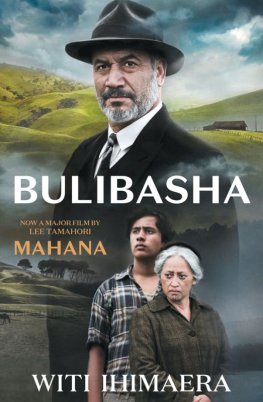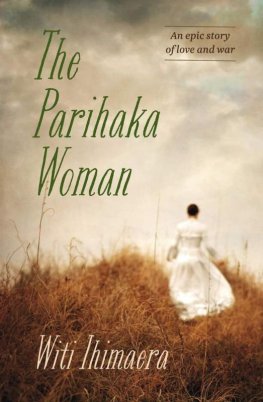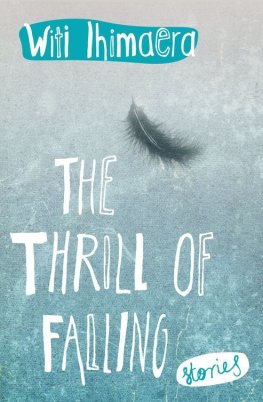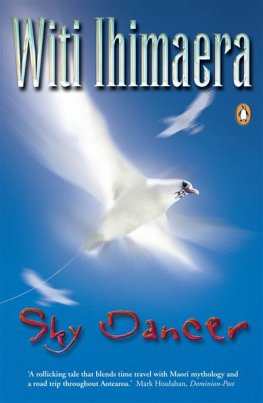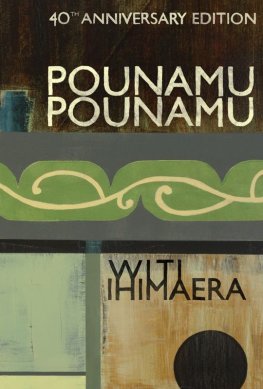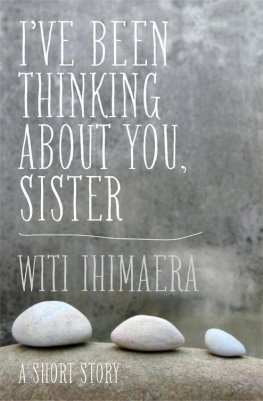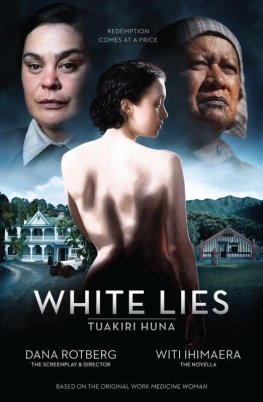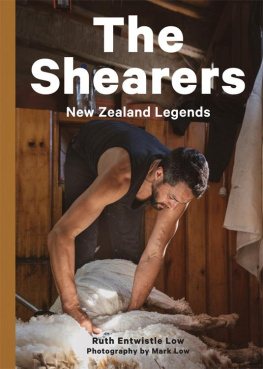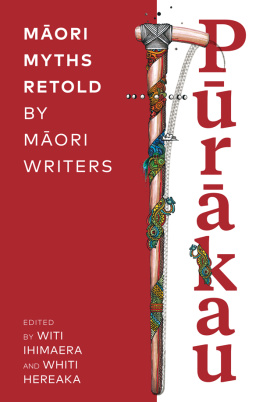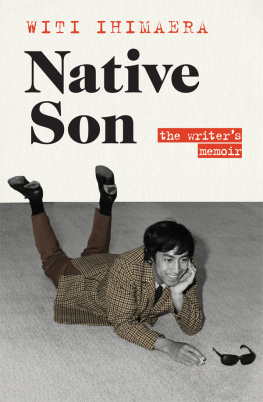It was Tobio who gave the name Bulibasha to Grandfather. I was twelve then and still obedient. My father Joshua had been shearing at a station near Matawai. He was on his way home when he saw Tobio weaving this way and that on the roadside, and he stopped the car to help this drunk Maori before he got run over. As he approached, however, Dad realised that Tobio wasnt drunk at all. Tobio was dancing, a queer dance with slaps to the chest, stamping of feet, flicking of wrists and snapping of fingers. And Tobio wasnt a Maori.
Komm Zigany, Komm Zigany, spiel mir was vor
Are you all right? Dad asked.
Tobio stopped in mid-click and mid-stamp. He grinned at Dad, revealing white teeth in a rich red mouth. He tossed his black curls. He had green eyes and wore a golden ring in his right ear. He was in his early twenties.
I dance to be happy, he said. He put his arms around Dad and burst into tears.
Dad brought Tobio home to Waituhi. Grandfather was doubtful about having him around, especially with three spinster daughters. He was even more concerned when he found out where Tobio was from Romany.
A gypsy, Grandfather said.
Yes! Tobio replied. He had a fierce and proud look in his eyes. Romany yes, gypsy yes.
And he proceeded to tell us, amid copious tears, the sorry story of how he had come to be in New Zealand.
I was born in Romania, he began, in Salonta, not far from the Hungarian border. All our family we live the gypsy way, you know? We travel all year round from Salonta to Oradea to Marghita to Carei and back again. Winter, summer, spring, autumn always the same. My father break horses, my mother sell fine clothings to rich ladies. We never steal and never take pretty babies He gave a sly look at my youngest sister Glory. Except now and then!
He shouted, grabbed Glory and started to kiss her all over. Then he burst into tears again.
So sorry, he said. She look so like my little sister, you know? Well, life not too good in Romany just now with communisti takeovering of Hungary, and my father say, You go to Oakland in California. We have uncle there. You go, stay there, work for uncle, then send for us. So that what I promise to do. I cry He showed us. I do not want to leave Salonta, my beloved Apuseni mountains. I travel many days alone to Timisoara then Craiova to Bucuresti. Cry all the time He showed us again. I have many bad adven-tures. Then at Bucuresti I meet a man who tell me go to Constanta, the port. So I go. And there, I hardly believing my eyes what I see, is ship leaving for Oakland! So I work my passage many months and arrive Tobio looked at each of us sorrowfully. I arrive in this country, not the America Oakland but the New Zealand Oakland. You know? Au-ckland.
E hika, Mum said.
Tobio stayed with us all that year, working for Grandfather who, despite his earlier misgivings, discovered that Tobio had the same gift for breaking horses as his gypsy father. During that summer Tobio became part of the Mahana Four gang, bossed by Uncle Hone, travelling from one shearing shed to the next.
The Pakeha owners of the stations were intrigued by Tobios presence among us. They often invited him to stay with them rather than with the clan in the shearers whares. At first Tobio was flattered, then puzzled and then understanding. He began to refuse the offers.
They think I same as them, he said. Is better here with you. Maori and Romany are same people. Same blood.
Tobio was a bit crazy. He was a strange, wilful, passionate presence among us. He sometimes caused fights between his lovers and was often found in the middle of them, laughing for joy. He had a great need to be loved, and would often encourage jealousies among those who wished to woo him.
He loved Maori life and the family, and greatly admired Grandfather Tamihana.
This is like my own family, you know? he said to Grandfather. You are like my father. You live just like us, wandering all over. I am at home here but I am not at home. And I am not yet at Oakland.
By the end of that year we had come to love Tobio. We thought he was happy with us. However, when winter came he began to dance more frequently, a lone dancing shadow on our landscape.
Komm Zigany, Zeig heut was du kannst
He was lonely for his own kind. We knew that if he did not find them soon, his heart would break.
Tobio had earned sufficient to get by ship to Hawaii, and had organised a visa for America. When Grandfather gave him the extra to get him to California, he burst into tears.
We all went to the bus station to see Tobio leave for Auckland. He was excited, childish, unbelievably innocent, rushing from one of us to the next and showering us with kisses. When the time came for him to board the bus he grew grave and dignified. He bowed before Grandfather.
In my country, he said, all the gypsy peoples they go to the monastery in Bistrita. Thousands of the Romany go. Some from Hungary too, from the Ukraine, from the Bulgaria, all go. My father Tobio paused, gulping, he take me there once. He stood up straight. There, all the gypsies agree who will be their leader. We crown him King of the Gypsies. Bulibasha.
He took Grandfathers hand and kissed it. Then he was gone. Soon after he left my conflict with Grandfather began.
In those days, if you wanted to get to Waituhi from Gisborne, you had to cross the red suspension bridge over the Waipaoa River just past the Bridge Hotel. The hotel is still there but the bridge was long ago replaced.
Dumped on land now owned by the regions premier vintner, Matawhero Wines, the bridge is a worrying reminder that things shrink as you get older. I remember it as an imposing superstructure which cast shadows over our Pontiac as we drove across. When the river raged in winter the swollen silt-laden waters slammed tree trunks against its pontoons. In reality, the bridge was very small and short, redolent of the times before constant flooding of the Gisborne lowland compelled engineers to slash shortcuts across each S-bend and to open out the rivers width like a gutted stomach. Back then the river had a narrow course a slender eel threshing toward the delta at the sea.
Something else happened when human engineers simplified that complex landscape of river bends. With every sculpting movement of bulldozer and grader, they stripped the river of its mythology. Engineers control it with scientific and analytical precision, monitoring its rise and fall by computer, taming its wilfulness by the flick of a button. This simplification has led to an acceleration of time. The epic dimension that existed when you travelled at thirty miles an hour maximum on a twisting, turning road has gone. Once it took almost two hours to get to Waituhi. Now the journey takes half an hour.
Once you crossed the bridge, you turned either left to Hukareka or right to Waituhi. Most people turned left because that was the main highway across the Whareratas to Napier, Hastings, Waipukurau and, eventually, Wellington. Hukareka just happened to be on the way. But if you turned right, Waituhi was your only destination. There was something superior about that, as if our small village was as important as Wellington. Certainly it was more important than Hukareka which was like a horses fart, a strong smell of processed hay in the air which you passed in a hurry.
The road to Waituhi alternated between tar seal and shingle. My sisters and I used to watch out for the shiny black surfaces and, as we approached, would yell, Kei konei! Te rori Pakeha! Look! The Pakeha road!
For a glorious few seconds the air would clear of dust and we would be able to gulp its freshness.

